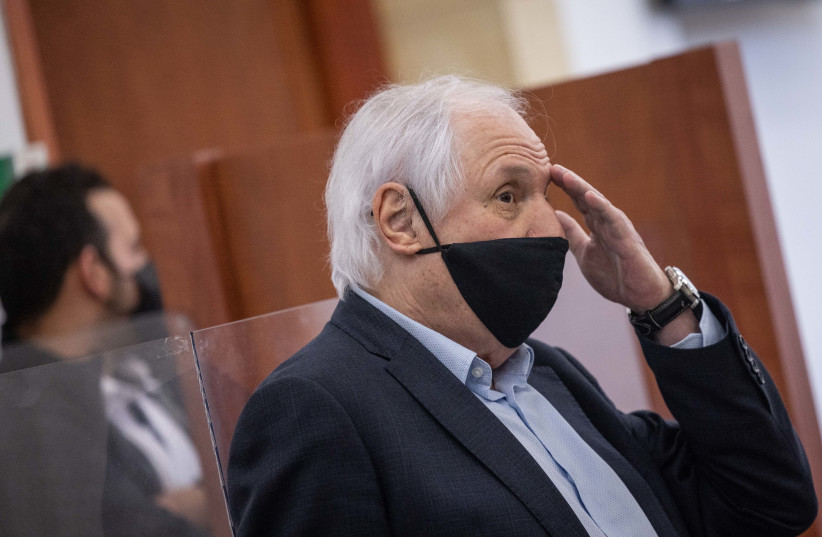Former prime minister Benjamin Netanyahu will not be convicted or acquitted based on the testimony of just one person, but a rare moment occurred on Monday when all the dots in the alleged media bribery Case 4000 Bezeq-Walla Affair were connected.
Shlomo Filber testified about an incident where he was discussing Bezeq regulatory issues with Bezeq and Walla owner Shaul Elovitch, and Elovitch injected some Walla media issues.
At that moment, Filber testified, Elovitch said that Netanyahu had asked him to put the story about Israeli-Arabs “rushing to the polls” in the 2015 election as the top story on the Walla website for an extended period.
When this occurred, Elovitch made it pretty clear to Filber that he and Netanyahu were helping each other in a quid pro quo fashion on both the media and regulatory tracks.
Why is this so significant?

Part of why it has been difficult for the prosecution to prove its case – if you presume Netanyahu is guilty – is that he acted through a highly sophisticated compartmentalized scheme of messengers.
The prosecution nailed former prime minister Ehud Olmert through the testimony of Shula Zaken and again with Shmuel Duchner. Both of them were involved in all of his affairs.
There has generally not been one such “silver bullet” witness in the Netanyahu case, as most witnesses who were allegedly acting on his behalf did not know it, as he activated them through messengers.
The only two witnesses who have testified that they acted directly on his behalf in Case 4000 have been Nir Hefetz and Filber.
However, after claims by the prosecution leading into the trial that Hefetz would connect all the dots, it turned out that 99% of his testimony only went toward the Walla part of the case.
There were a few rare instances where Hefetz can be said to have had some connection to the Bezeq part of the case, but they did not add up to much, and none of them individually were slam dunks.
This is what made Monday’s testimony by Filber so significant.
Filber knew very well that he was making several major regulatory moves happen for Elovitch at Netanyahu’s order, despite knowing that he was bulldozing over the objections from most of the apolitical Communications Ministry experts.
In fact, carrying out that bulldozing on behalf of Netanyahu and Elovitch was exactly why the former prime minister put him in his position: to replace the fired Avi Berger, who had stood with the apolitical experts objecting to favoritism toward Elovitch.
Until Elovitch revealed that Walla article to Filber, the former Communications Ministry director-general could have claimed he did not know that Elovitch was “paying” Netanyahu for regulatory favoritism through media favoritism.
But then Elovitch mentioned this to him, as well as an instance when a Netanyahu adviser sent him media items to hand off to Elovitch, and an incident when Elovitch complained about Yair Netanyahu badgering him too much about the Walla site. After that, the idea that he knew nothing about the quid pro quo became harder to believe.
And if Filber and Elovitch believed they were part of a scheme for Netanyahu – regardless of whether they admit to it – will the judges think that only the former prime minister did not know?
The reason that these stories do not end the case is because they appear to have been Elovitch slip-ups more than Netanyahu slip-ups.
In other words, these Filber examples may very well sink Elovitch, and may also make it harder for Netanyahu to deny the quid pro quo of his regulatory favoritism. But there are still no examples where Netanyahu himself mentioned the Walla media issues to Filber.
What this means is that in the ongoing marathon war of attrition that is the Netanyahu trial, the prosecution has not yet claimed victory, but it blew another large hole in the former prime minister’s defense.
